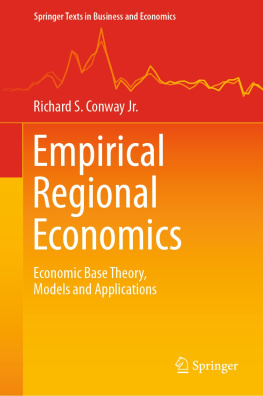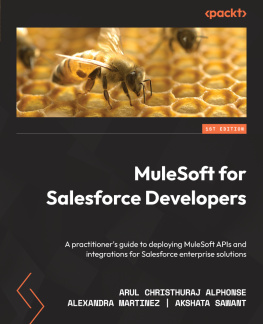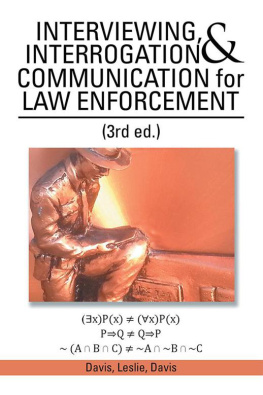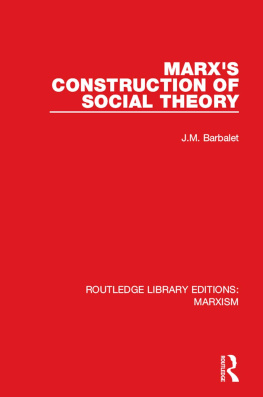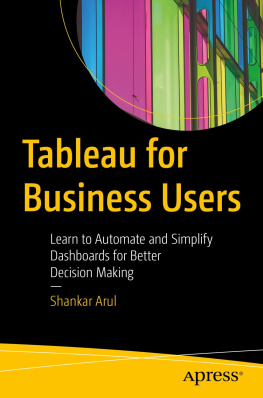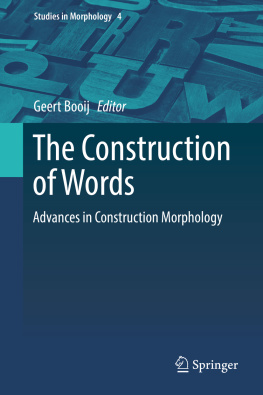Arul Chib - Empirical Interrogation of Theory Construction
Here you can read online Arul Chib - Empirical Interrogation of Theory Construction full text of the book (entire story) in english for free. Download pdf and epub, get meaning, cover and reviews about this ebook. publisher: MIT Press, genre: Politics. Description of the work, (preface) as well as reviews are available. Best literature library LitArk.com created for fans of good reading and offers a wide selection of genres:
Romance novel
Science fiction
Adventure
Detective
Science
History
Home and family
Prose
Art
Politics
Computer
Non-fiction
Religion
Business
Children
Humor
Choose a favorite category and find really read worthwhile books. Enjoy immersion in the world of imagination, feel the emotions of the characters or learn something new for yourself, make an fascinating discovery.

Empirical Interrogation of Theory Construction: summary, description and annotation
We offer to read an annotation, description, summary or preface (depends on what the author of the book "Empirical Interrogation of Theory Construction" wrote himself). If you haven't found the necessary information about the book — write in the comments, we will try to find it.
Arul Chib: author's other books
Who wrote Empirical Interrogation of Theory Construction? Find out the surname, the name of the author of the book and a list of all author's works by series.
Empirical Interrogation of Theory Construction — read online for free the complete book (whole text) full work
Below is the text of the book, divided by pages. System saving the place of the last page read, allows you to conveniently read the book "Empirical Interrogation of Theory Construction" online for free, without having to search again every time where you left off. Put a bookmark, and you can go to the page where you finished reading at any time.
Font size:
Interval:
Bookmark:
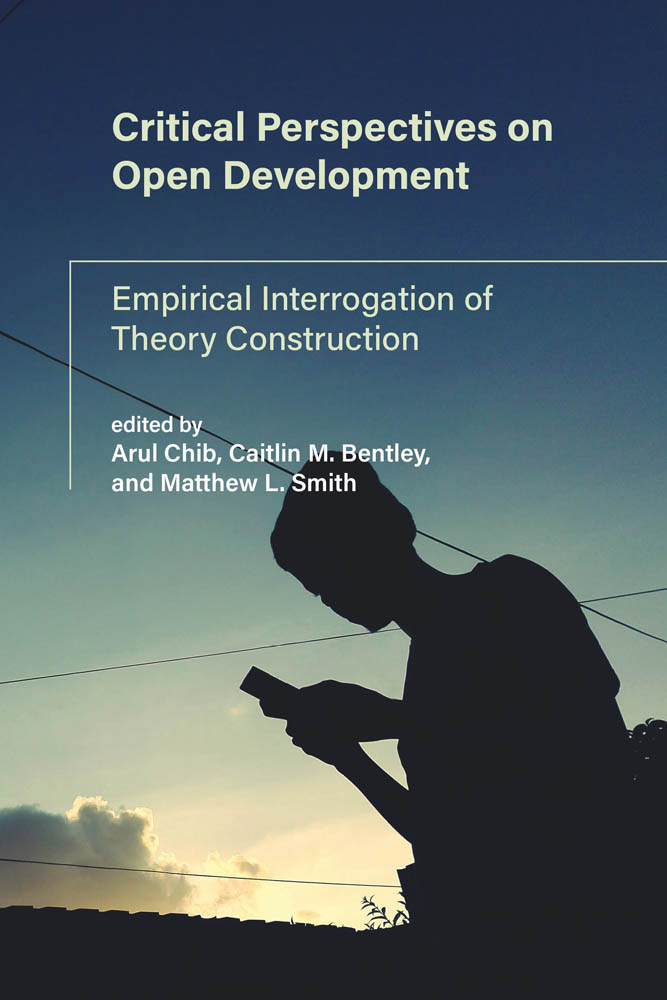
The MIT PressInternational Development Research Centre Series
Open Development: Networked Innovations in International Development, edited by Matthew L. Smith and Katherine M. A. Reilly
Public Access ICT across Cultures: Diversifying Participation in the Network Society, edited by Francisco J. Proenza
Shadow Libraries: Access to Knowledge in Global Higher Education, edited by Joe Karaganis
Digital Economies at Global Margins, edited by Mark Graham
Making Open Development Inclusive: Lessons from IDRC Research, edited by Matthew L. Smith and Ruhiya Kristine Seward
Critical Perspectives on Open Development
Empirical Interrogation of Theory Construction
Edited by Arul Chib, Caitlin M. Bentley, and Matthew L. Smith
The MIT Press
Cambridge, Massachusetts
London, England
International Development Research Centre
Ottawa Amman Dakar Montevideo Nairobi New Delhi
2020 Contributors
This work is licensed under a Creative Commons Attribution 4.0 (CC-BY 4.0) International License.

Published by the MIT Press.
A copublication with
International Development Research Centre
PO Box 8500
Ottawa, ON K1G 3H9
Canada
The research presented in this publication was carried out with the financial assistance of Canadas International Development Research Centre. The views expressed herein do not necessarily represent those of IDRC or its Board of Governors.
Library of Congress Cataloging-in-Publication Data
Names: Chib, Arul, editor. | Bentley, Caitlin M., editor. | Smith, Matthew L., editor.
Title: Critical perspectives on open development : empirical interrogation of theory construction / edited by Arul Chib, Caitlin M. Bentley, and Matthew L. Smith.
Description: Cambridge, Massachusetts : The MIT Press, [2020] | Series: The MIT Press--International Development Research Centre series | Includes bibliographical references and index.
Identifiers: LCCN 2020024468 | ISBN 9780262542326 (paperback)
Subjects: LCSH: Information technology--Economic aspects. | Information technology--Social aspects. | Information society. | Information commons. | Open source software. | Economic development.
Classification: LCC HC79.I55 C75 2020 | DDC 303.4833--dc23
LC record available at https://lccn.loc.gov/2020024468
ISBN: 978-1-55250-596-0 (IDRC e-book)
d_r0
- Caitlin M. Bentley, Arul Chib, and Matthew L. Smith
- Katherine M. A. Reilly and Juan Pablo Alperin
- Anuradha Rao, Priya Parekh, John Traxler, and Rich Ling
- Bidisha Chaudhuri, Janaki Srinivasan, and Onkar Hoysala
- Paul Mungai and Jean-Paul Van Belle
- David Sadoway and Satyarupa Shekhar
- Linus Kendall and Purnabha Dasgupta
- Andy Dearden, Marion Walton, and Melissa Densmore
- Yingqin Zheng and Bernd Carsten Stahl, with contributions from Becky Faith
- Parminder Jeet Singh, Anita Gurumurthy, and Nandini Chami
- Piyumi Gamage, Chiranthi Rajapakse, and Helani Galpaya
- Goodiel C. Moshi and Deo Shao
- Caitlin M. Bentley
- Matthew L. Smith, Arul Chib, and Caitlin M. Bentley
List of Figures
A model of trust between stakeholders using open systems and the ecosystem of trust.
Leaky water pipe in south Bengaluru (Bangalore).
Source: Sadoway, Gopakumar, and Sridharan (2013).
Map of southern India showing Chennai (Madras) on the southeast coast.
Source: Open Street Map (2018), https://www.openstreetmap.org/#map=5/12.983/73.960&layers=T.
An example of a public place mainly utilized by men.
Source: Authors.
Moumita updating the public blackboard.
Source: Authors.
Basic structure of an activity.
Source: Authors, modified from Kari Kuutti, Activity Theory and Human-Computer Interaction, in Context and Consciousness, ed. Bonnie A. Nardi (MIT Press, 1996), 28.
Examining the perspective of Gazette journalists.
Source: Code4SA (now OpenUp) (2016). https://twitter.com/OpenUpSA/status/793741180945268736.
Screenshot of the window farmers use to send questions to 1920.
Source: Mobile app designed by LIRNEasia.
List of Tables
The three main types of open processes, connected open practices, key characteristics, and examples
ICT in development
Schools of thought about intermediation
The three main types of open processes, key characteristics of open practices, and learning as participation
Questions concerning the design stage of open development projects
Questions regarding the implementation stage of open development projects
Questions concerning the evaluation stage of open development projects
Three main types of open processes
Social transformation as changing social relations in open initiatives
This research was conducted as part of the Strengthening Information Society Research Capacity Building Alliance (SIRCA) III program and is funded by Information and Networks in Asia and sub-Saharan Africa, a partnership between the United Kingdoms Foreign, Commonwealth and Development Office (FCDO) and Canadas International Development Research Centre (IDRC), under the Networked Economies program at IDRC.
We would also like to acknowledge two SIRCA members, Yvonne Lim and Sandy Pek, whose contributions were critical to this volumes success.
At IDRC, we thank Catherine Bienvenu for copyediting the manuscript, and Nola Haddadian, publisher, for providing invaluable assistance in publishing our manuscript. We also appreciate the contributions of MIT Presss Gita Devi Manaktala, editorial director, and Mara Isela Garca, acquisitions assistant, to the publication of this volume.
The Strengthening Information Society Research Capacity Alliance (SIRCA) program ran for over a decade. What began as an intensive mentorship program for Asian scholars soon expanded to include members from across the globe. Driven by a passion for social change through the application of information and communications technology (ICT) in developing countries, SIRCA scholars have demonstrated outstanding influence. They have shifted ICT4D (ICT for Development) discourses and taken up leadership roles within their institutions. Now, following the end of SIRCAs third iteration, we have successfully developed and tested a more concentrated research model focused on a central objectiveto build the field of open development. Focusing on the impact of digitally enabled openness in reducing global inequalities enables SIRCA to bring our transformed program design into effective action.
In 2015, we began theorizing open development by centering on whether, how, for whom, and in what circumstances does the free, networked, public sharing of digital (information and communication) resources contribute toward (or not) a process of positive social transformation. Six teams of leading scholars developed white papers, which were released to the public to enable external researchers to build research proposals for investigation. An additional six teams of empirical researchers were selected in 2016 to put our theories to the test.
Font size:
Interval:
Bookmark:
Similar books «Empirical Interrogation of Theory Construction»
Look at similar books to Empirical Interrogation of Theory Construction. We have selected literature similar in name and meaning in the hope of providing readers with more options to find new, interesting, not yet read works.
Discussion, reviews of the book Empirical Interrogation of Theory Construction and just readers' own opinions. Leave your comments, write what you think about the work, its meaning or the main characters. Specify what exactly you liked and what you didn't like, and why you think so.

